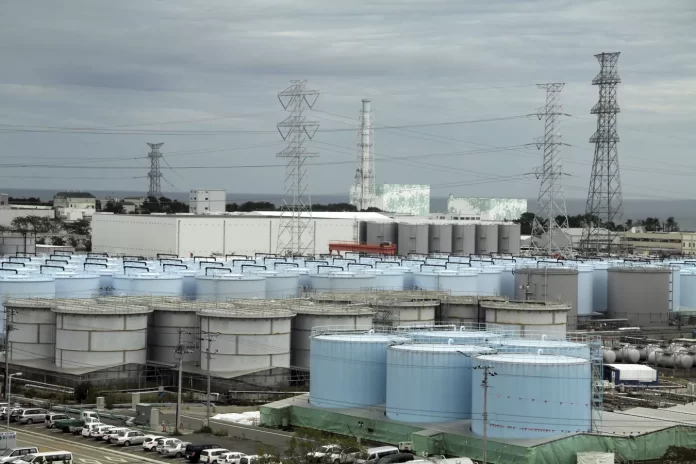AUCKLAND, 13 MARCH 2023 (XINHUA)— Japan should stop perpetuating nuclear colonialism, and instead respect the sovereignty and self-determination of Pacific nations regarding the planned discharge of radioactive wastewater from the Fukushima Daiichi Nuclear Power Plant, a New Zealand sociologist has said.
The social aspects and major country relations around Japan’s decision to release the radioactive wastewater from the defunct plant must be questioned, Karly Burch from the University of Auckland told Xinhua in a recent interview.
“Pacific peoples have a fundamental right to a clean, healthy, and sustainable environment. By proceeding with this plan to discharge radioactive wastewater without community-led consultation, rigorous scientific debate, and public deliberation, the Tokyo Electric Power Company (TEPCO) and the Japanese government are showing direct disregard for the sovereignty and self-determination of Pacific peoples,” Burch said.
The action is a continuation of the ongoing trend of nuclear colonialism, where indigenous peoples and their lands and waters are targeted as testing or dumping grounds to maintain nuclear production processes for nuclear weapons and energy technologies, she said.
Pacific peoples have been suffering from the social and material consequences of nuclear pollution for decades, she noted, citing the Runit Dome in the Marshall Islands, a U.S-built repository to temporarily store the nuclear waste from its 67 nuclear tests in the island country, as an example.
Struck by a magnitude-9.0 earthquake and ensuing tsunami that hit Japan’s northeast on 11 March 2011, the No. 1-3 reactors at the Fukushima Daiichi Nuclear Power Plant suffered core meltdowns, resulting in a level-7 nuclear accident, the highest on the International Nuclear and Radiological Event Scale.
The Japanese government and the plant operator, TEPCO, announced a plan in April 2021 to release more than one million tons of treated wastewater into the Pacific Ocean this spring.
Three months later, Japan greenlit the discharge plan while the International Atomic Energy Agency (IAEA)’s task force was still conducting the review mission.
Earlier this year, Japan unilaterally announced that it would start discharging the radioactive water in spring or summer, just before the agency’s task force arrived in Japan for review.
Burch, who joined others at the Nuclear Connections Across Oceania conference in November 2022 to call for an immediate termination of Japan’s plan, said that rigorous scientific studies should be conducted to address the many unanswered questions about the biological, ecological, social, cultural and economic impacts of the discharge, rather than merely focusing on questions of chemistry and dose responses, which has been the basis of TEPCO’s studies.
“A group of highly respected scientists working with the Pacific Islands Forum Secretariat shared in January that the data TEPCO provided about the possible impacts of the wastewater discharge is incomplete, inadequate, and inconsistent. They have been asking TEPCO for more information, but there are still a lot of unanswered questions,” she said.
Frontline community members in Japan and the Pacific who will be impacted to understand what is going on materially on the ground, rather than geopolitically powerful actors who profit from nuclear technologies, need to be the ones directing adequate consultation, she said.
“But it can be difficult to do these studies because certain geopolitically powerful actors who benefit off of nuclear imperialism and nuclear colonialism might not want people to ask certain questions,” she added.
Meanwhile, Burch called on the New Zealand government to “stay true to its commitments to a nuclear-free Pacific and to support other concerned Pacific governments and peoples by playing a leading role in taking a case to the International Tribunal for the Law of the Sea against Japan.”
“We need someone to take Japan to court,” as it is the only way to stop its wastewater discharge, she said.
“Regardless of the criticism, they are still saying it is safe. I’m sure Japan will keep saying the wastewater is safe to dump until they have the political ability to push the plan through,” she said, adding that Japan could use “a political manoeuvre that allows for trust to replace the need for rigorous scientific studies and debate, or the need to respect the Law of the Sea.”
“If we allow Japan to get away with this, I’m really nervous about the precedent it will set for others,” she said.
SOURCE: XINHUA/PACNEWS













